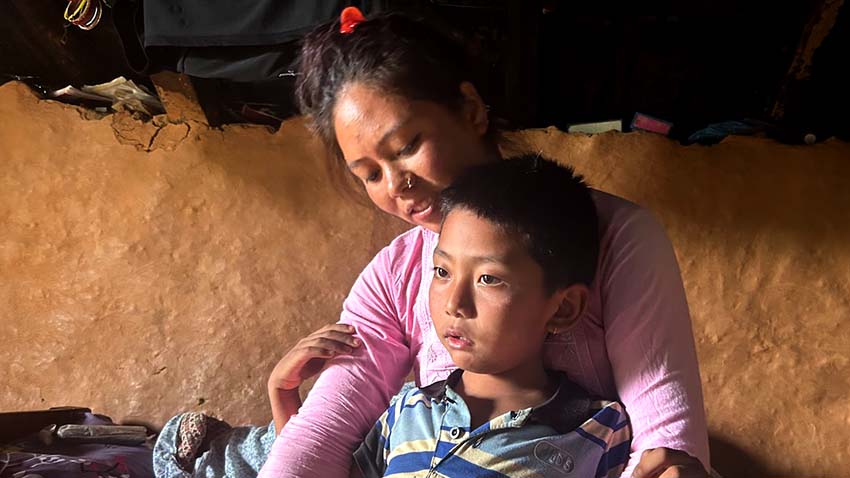
Preus reaches down to pick up a piece of candy that he dropped with his left hand. Remarkable.
I’ve never met Preus (pray-oos) before but I feel like I have. The COVID crisis taught us a lot about working remotely and through the miracle of Zoom, I had consulted with my team in Nepal about this boy many times. Preus, now 9 years old, was brought to our clinic by his mother in late 2020. The story she told us lacked critical details though we were able to deduce that Preus had suffered a brain injury. On further questioning we learned that Preus had been a normal little boy until about age five when he suddenly became ill with a very high fever which lasted several days. This fever could have been caused by COVID but it was more likely to have been caused by Typhoid (which is endemic in Nepal).
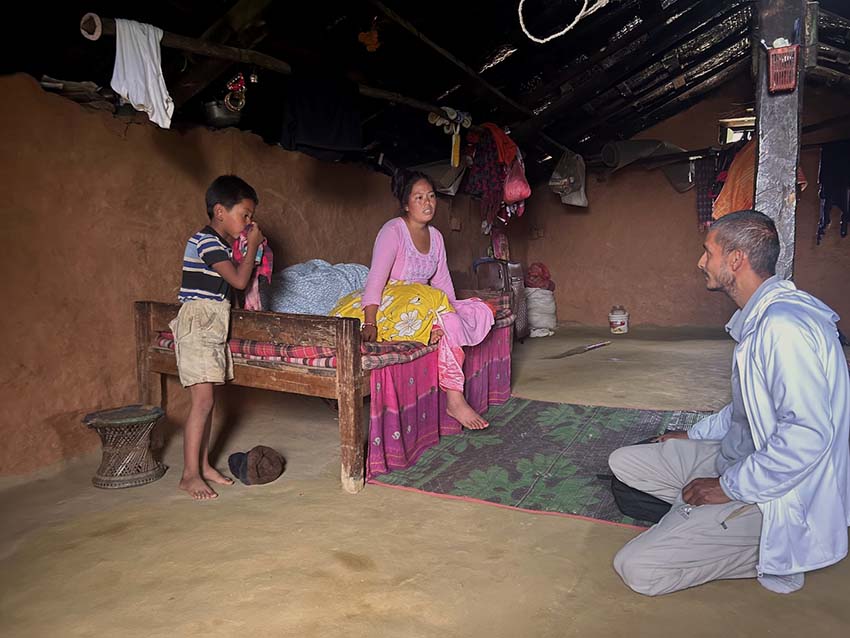
This morning Satyamohan (our senior clinician and clinic manager) and I decided to check in on Preus as he had not been back to the clinic for several months despite several calls to his mother asking for a follow-up. I never pass up a chance to visit patients at home if that is an option. It’s only about a 20 minute motorbike ride up the slippery, steep and rocky road just above our clinic but in some ways, it is a world away. Preus’ family are Tamang, a sub ethnic group found in the hill and mountain regions of Nepal. They maintain their own language, customs and rarely marry outside of their ethnic group. We arrive in the small Tamang settlement made up of about a dozen small, mud and stone, houses with corrugated metal roofs. Several children in dirty clothes gape open mouthed at me (a tall, white haired foreigner on a motorbike) bumping up the road to Preus’ house where we were greeted by his mother. She was just returning from the market, walking down the steep hill above their house wearing flip-flops and carrying a recycled 2-liter bottle of a milky liquid. Chaang is a home-made beer made from rice and other grains. A staple food of hill farmers, its low alcohol content keeps it from growing bacteria while being calorie rich to provide energy throughout the day.
We are invited into the two-story house where the livestock live on the ground floor. We remove our shoes and proceed up a steep ladder to the living quarters. The floor is smooth and swept clean, made of a mixture of manure and clay. It is refreshed once a year by swabbing the floor down with a thin layer of slurry and left to air dry. The living quarters are dark, only lit by a small window at each end of the gable. About 300 square feet by my eye. There are two small beds and a cabinet which holds a single burner propane stove and 3 pots. A few family photos adorn the walls.
Preus' first visit to the Bajrabarahi Clinic in November 9th, 2020. Preus is unable to crawl, walk, speak or utilize his left arm.
When Prues was brought to our clinic originally, he couldn't speak, walk or use either hand. I asked my team to send me several evaluative videos and perform some neurological tests. They went to work seeing Preus every day at first. They provided physical exercise, massage, moxibustion and acupuncture. Within a month, Preus was starting to walk on his own. Within three months he was able to walk around the clinic, speak in short sentences and ask for what he wanted. Usually chocolate. His mother reported that he stopped having temper tantrums and had become very affectionate.
Satyamohan and Sushila worked with Preus every morning before starting their normal clinical duties and remarkably Preus started to talk again. By March 2021, he is able to walk with some assistance.
June 2021, Preus is able to walk independently.
“Sometimes acupuncture is like a miracle” our clinic director Sushila Gurung told me with tears welling up in her eyes. She had worked closely with Preus over the many weeks and was not only impressed by the progress that he had achieved… she was a little astonished that these changes were even possible.
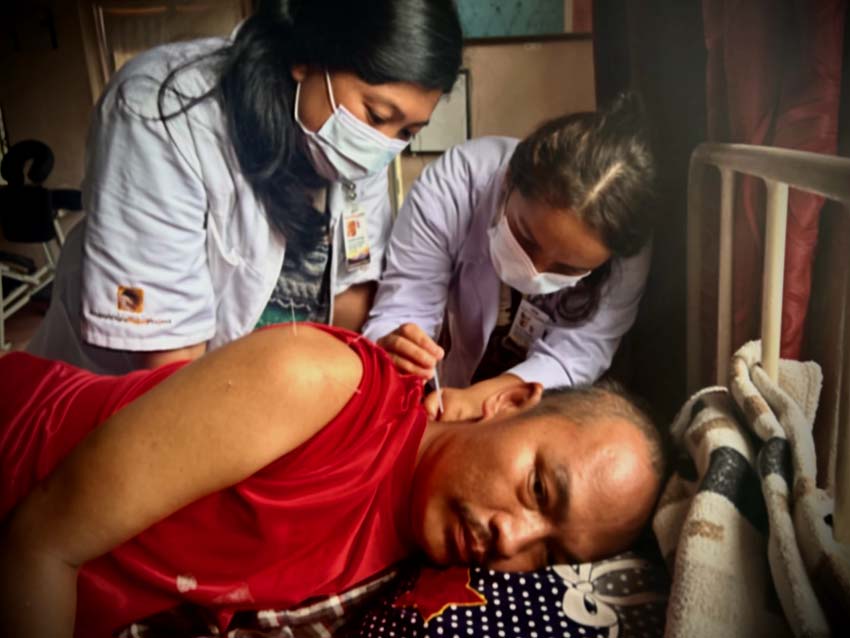
She’s right about the miracle part… but it's not the acupuncture. Don’t get me wrong, I’ve seen acupuncture achieve inexplicable results especially when treating brain injuries and other neurological diseases. When I saw the videos of Preus learning to walk again, I knew that his trajectory in life had changed. Walking is necessary for the brain development of speaking and reading. The real miracle comes from having access to qualified care. Acupuncture is just one feature of that care. What Preus really needed was compassionate providers who could patiently coach, incentivize and lead him back to wellness. That access also provided for care for the mother in the way of clinical education, helping her understand what had happened and teaching her how to do exercises with Preus at home. Access to care may have even prevented the injury in the first place. Meeting Preus now I knew that my team had achieved something truly profound.
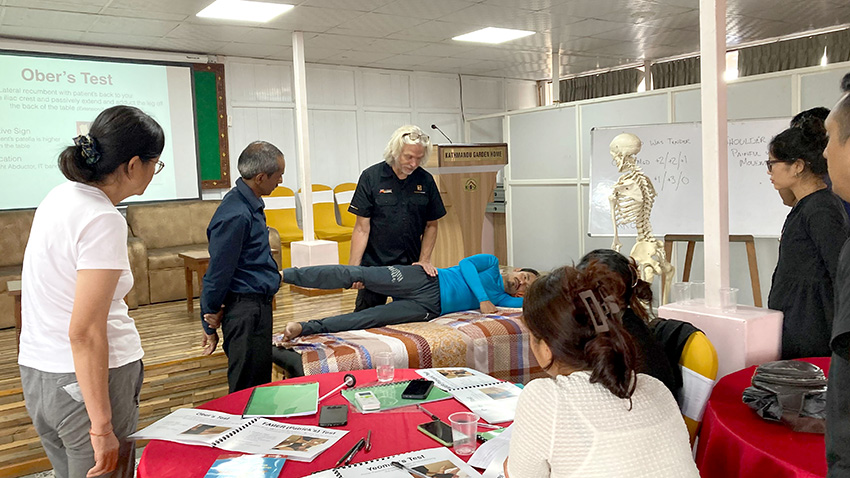
When I have the privilege of being in Nepal I spend most of my time teaching. I consult on difficult cases in the clinic throughout the day and teach theory, pathology and treatment strategies to my staff and volunteers in the evening. I spent my last three days in Kathmandu providing a workshop on chronic low back pain to several young and enthusiastic practitioners from across Nepal. And though we are working on a particular pathology or technique, it’s my underlying message in which I hope to inspire. “We need to think about the whole person and not just the pain they are telling us about”. The more we know our patients and their lives, the better solutions and health outcomes we can achieve. More importantly, patients need to know what we are thinking. What do we think is wrong with them, what can be done and what can they expect in the future?
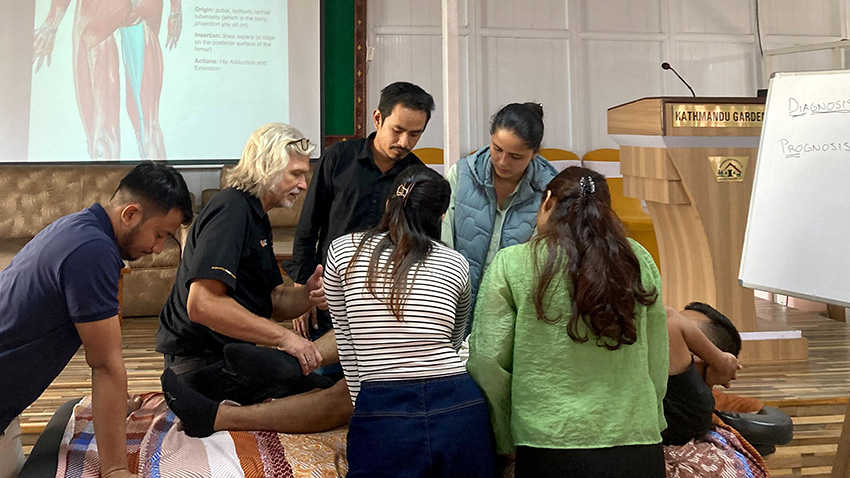
Around the globe, our healthcare for-profit model has promoted some despicable behaviors. In the US, the corporatization of our health system has put increasing pressure on doctors and other health workers to depersonalize care though stringent efficiency protocols. This has resulted in not only a significant drop in healthcare outcomes but also widespread job dissatisfaction and burnout amongst health workers. It’s no surprise that tired and disengaged healthcare providers don’t provide the best care and burnout can lead to communication breakdowns among healthcare teams. Effective communication is crucial for patient care, and when healthcare workers are burned out, it can lead to misunderstandings and errors.
In Nepal, the challenges stem from a cultural context. Here, doctors often find themselves distanced from their patients due to vast disparities in education, wealth, and privilege. Unfortunately, this divide leads many doctors to believe that their patients wouldn't comprehend their explanations, discouraging efforts to establish meaningful communication. In other words, many of them don’t feel they need to explain themselves and find no value in the effort. Additionally, many doctors in Nepal have vested interests in hospitals and pharmacies, creating conflicts of interest and intensifying profit-driven motivations.
Whether it’s profit-driven pressures in the United States or cultural disparities and conflicts of interest in Nepal, both of these challenges emphasize the need to prioritize patient-centered care and enhance communication.
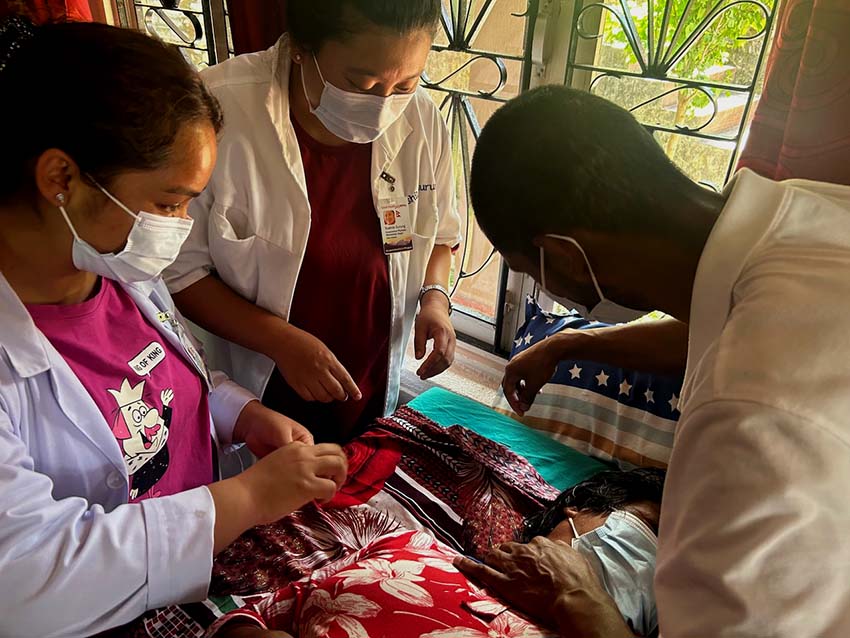
When our patients become “customers”, they are no longer people. They are consumers who “purchase” our very valuable attention and our only obligation is to efficiently transact that encounter. We effectively become a “pay-wall” of sacred knowledge and needed medications. It is so easy to over-promise, over-prescribe, over-test, and over-treat when there is a financial incentive attached. When I tell my volunteers that our clinic is unique in Nepal, it's not because we use acupuncture or integrative health strategies (though those are true). It’s because we emphasize knowing our patients, not just knowing their problems. Treating everyone equally and with respect regardless as-to whether they are wealthy merchants or an illiterate farmers. We patiently try to explain everything we are doing, why we are doing it and what the patient should expect (or not expect). I know what you are thinking… That’s obvious and it goes without saying but you are mistaken.
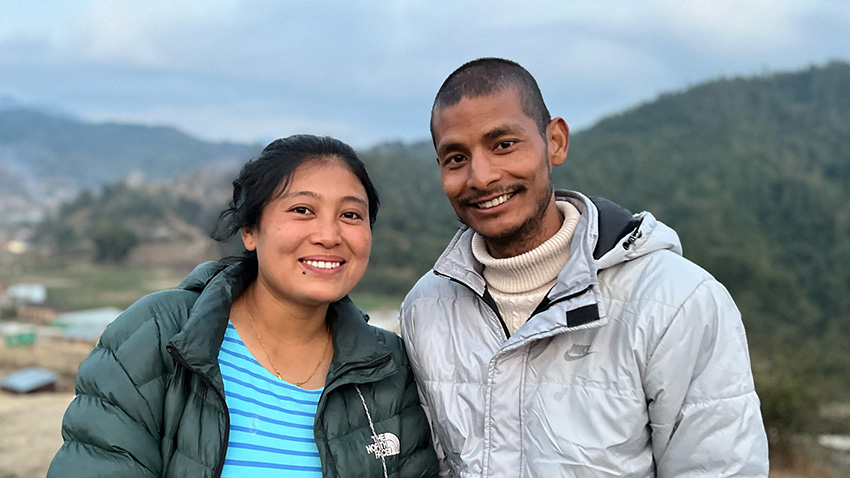
Here’s my case-in-point.
If you read my last blog post you know that our Clinic Director Sushila and our Clinic Manager Satyamohan are married and welcomed their first child in May. While I’m happy to report that our “ARP baby”, Aavya (Sanskrit for the first rays of the sun), is doing great and both parents have returned to the clinic, however, Aavya had a bit of a rough start in this world. Evidently she was in a hurry to get here because at only 34 weeks, Sushila’s water broke. Our initial hopes that Aavya would be born at our local birthing center by one of our formidable mid-wives was no longer a possibility. In the middle of the night Sushila was transferred by ambulance to a hospital in Kathmandu (see “Ripple Becomes a Wave” for an idea of what that experience is like). Sushila was immediately separated from Satyamohan at the hospital. She was frightened, confused and when she asked questions was promptly told not to worry about it. She was then transferred to a second hospital without explanation and ultimately Aavya was delivered via a c-section later that day. All this without any explanation of procedures, risks or alternatives delivered to either parent. Two days after the delivery, Sushila is in the hospital and she’s in pain. She has not been allowed to see the baby and she has not seen her doctor. Her attending nurses just tell her to be patient. Sushila starts to worry obsessively. When I talk with Satyamohan he is also confused and stressed. “No one will tell us anything”. Aavya’s initial lab reports are ominous and confounding and still no professional explanation as to what is happening. After persistent advocating for Sushila to have contact with Aavya, she is finally allowed to hold her five days after the birth. The World Health Organization (WHO) recognizes and even mandates that mothers and babies receive skin to skin contact within hours of a c-section, even when the infant is premature because this contact is critical to the well-being of both. To withhold this has consequences. Inexplicably Aavya is released to her parents' care after 14 days without any instructions. Are new parents of a premature infant just magically supposed to know what to do and what to watch for? A month later Sushila is still having significant pain from her c-section and she doesn’t know whether this is normal or not. Aavya has been rushed to the hospital several times over things that might seem minor but to Sushila’s ill-informed and somewhat traumatized mind she has no choice. I look at lab reports which I share with several colleagues for their expert advice. Aayva’s thyroid and liver functions are impaired but improving. By three months she starts to gain significant weight and things look pretty normal. Finally Sushila is able to return home to our clinic where she is surrounded by our clinic family and she starts to form a more normal routine. I listen carefully to Sushila’s recounting of the experience and her frustration with her care. Having known Sushila since she was 18 years old, I can tell that the experience had a profound impact on her mental wellbeing. I sincerely hope that those experiences fade with time.
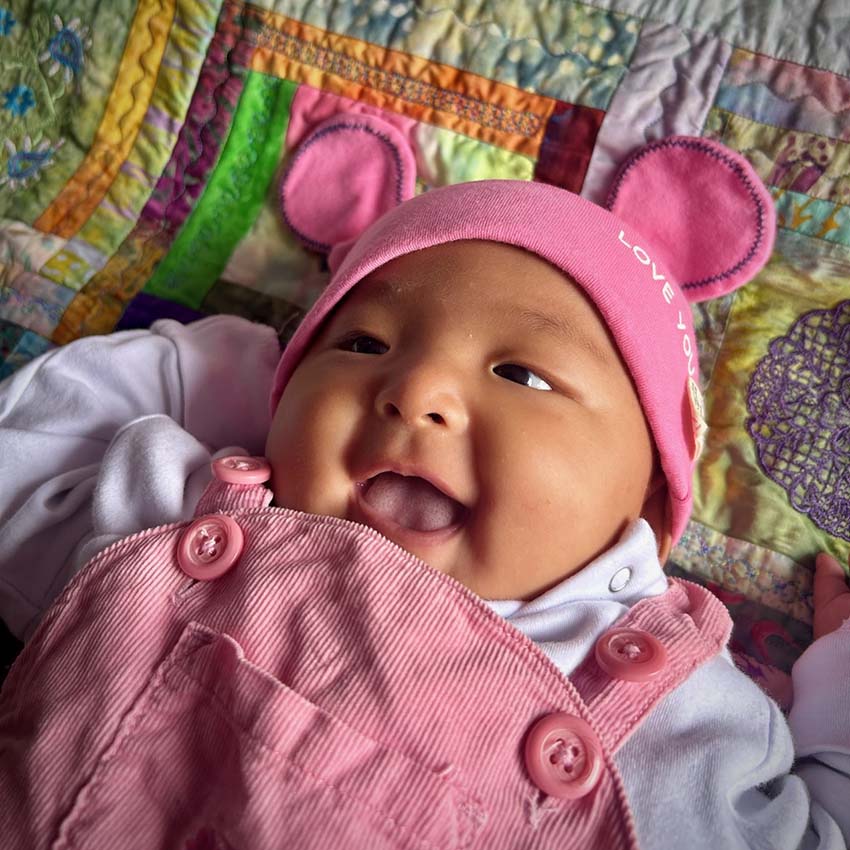
With Aavya I have been given the respected title Baji (Baa-Jee), meaning grandfather and I am so grateful.
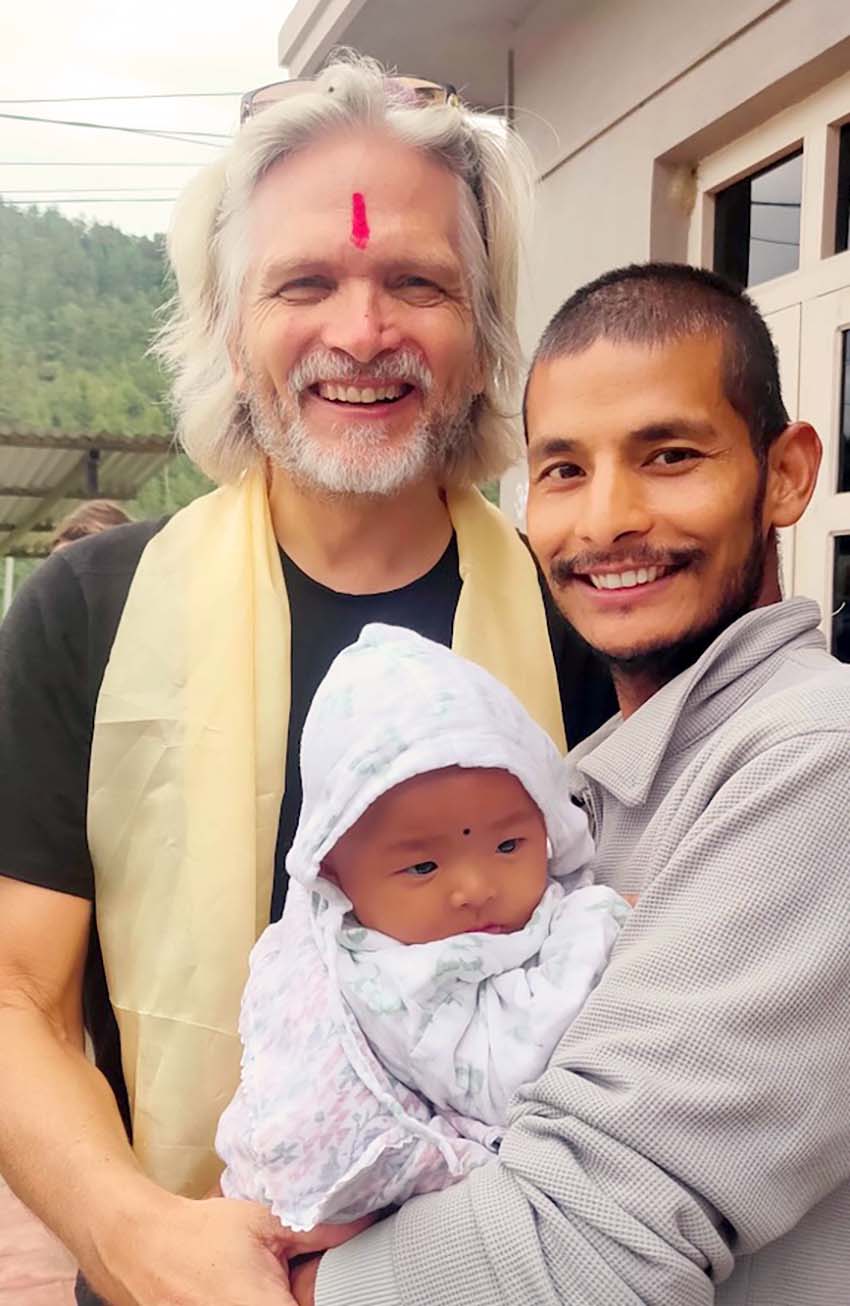
Our team sits together and we talk about the importance of the patient/practitioner relationship. Doctors could do so much better if they would just take a few more minutes, make better eye contact and explain what they are thinking to their patients. We could improve patient outcomes and it doesn’t cost us anything. We don’t need more fancy equipment and it has nothing to do with the quality of the facility. It just takes a little human contact to have such a profound impact. Of course we want our doctors to be experts and we want them to have the proper equipment and facilities but that’s not enough if we can’t truly connect and care.
September 2023, Preus walks independently and has returned to school.
September 2023, Preus demonstrates the use of his left hand.
Today, the sun streams through the open window on the south side of Preus’ house and I have to bend down a little as the ceiling is a bit too low for me. We are here to check up on him but also appeal to his mother to bring him back to the clinic. He’s remarkably better but more could be done. Both Satyamohan and I are impressed with his ability to walk and his use of both hands. He wanders over to the small cabinet to retrieve some small candies from a drawer. He brings a handful to share with us and as he offers one to Satyamohan, it slips from his fingers. Preus quickly bends and retrieves the treat with his trembling left hand. He speaks with us in both Nepali and Tamang (though seems to prefer the Tamang) and his mother says he has become a good student at school, “He reads every day”. Most importantly, he plays with other children and “He’s not angry anymore”.
Sometimes acupuncture IS like a miracle. --- Andrew
Author: Andrew Schlabach, AEMP LAc
Director, Acupuncture Relief Project
Bajrabarahi, Thaha, Makwanpur Nepal
---
As a post-script to this story I wanted to share a few other thoughts and updates. My dear friend Tsering Sherpa (Director of Good Health Nepal, our domestic partner) and his wife Sera Sherpa are expecting their first child in November, our second “ARP baby”. Sera narrowly survived an ectopic pregnancy three years ago. I listened at length as Sera reflected her frustration and inability to get anyone to explain anything to her. “They prescribe me medications but they don’t tell me what they're for or how to take them properly or for how long”, “no one explains to me the meaning of an imaging or lab report”, ”different doctors tell me completely different things and then don’t answer my questions”. As I listen I know she is unnecessarily stressed and she is having difficulty sleeping due to rumination on worst-case scenarios. I really don’t want to criticize doctors. I try to be a respectful health partner to them and there are some great doctors out there (I appreciate you all) but… I hear these same things from many of my patients in the States and these are problems that can be easily remedied. And it doesn’t cost anything. To be fair, if you have a doctor that does take the time to explain things to you in a way that you can understand. Tell them that they are doing a great job and that you appreciate them. They have a difficult job to do and they need to hear that from you.
Secondly, I had a chance to sit and chat individually with everyone in our clinic family. I would like to share a few insights that I received. Keep in mind that when I quote people, they are speaking in a second or third language. I know it is not grammatically correct but I want to give you some sense as to the authenticity of their thoughts.
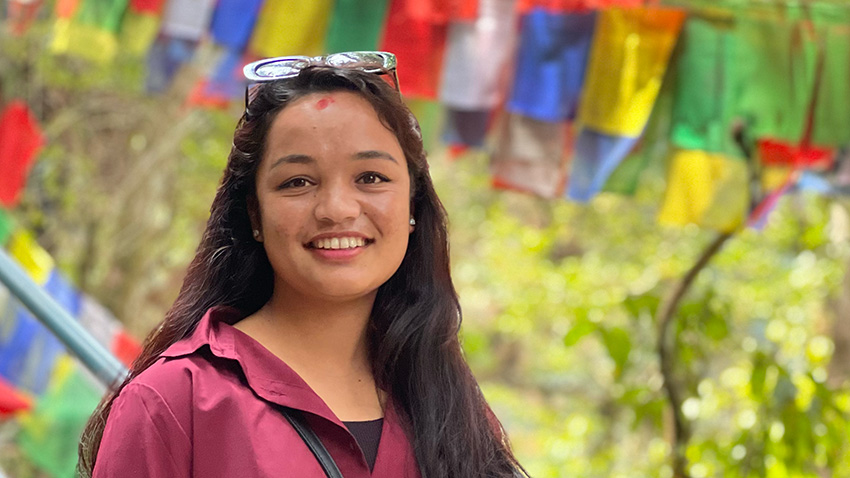
Sanita Gopali (acupuncturist) joined our clinic as an intern last year and we were able to offer her a permanent position this year. Sanita is a local girl from Kunchal (a village near our clinic) who attended an interpreter training that Tsering Sherpa offered several years ago when she was in High School. “I was so nervous and shy and my English was not so good. I was not selected [as an interpreter] that year”. She came back the next year and was invited to join our team as an interpreter. “I learned so much and I came to know that there is a school for acupuncture in Nepal so I asked my parents if I could try to study”. Last year I had quite a bit of time to work with Sanita on some foundational skills. Satyamohan and Sushila have been mentoring her in the clinic and now she is taking her own patients under their guidance. She has vastly improved in her skills and almost always has a textbook open when she has a spare moment in the clinic. We are hoping that she will be hired by the government to found a new clinic nearby in the next year or so. At age 23, she still lives with her parents in Kunchal which is typical for young unmarried women in Nepal. I asked her to reflect on her journey with our project. “How does it feel to put on that white jacket and treat people from your own village?”. Her face instantly changed as tears filled her eyes. “So proud!”
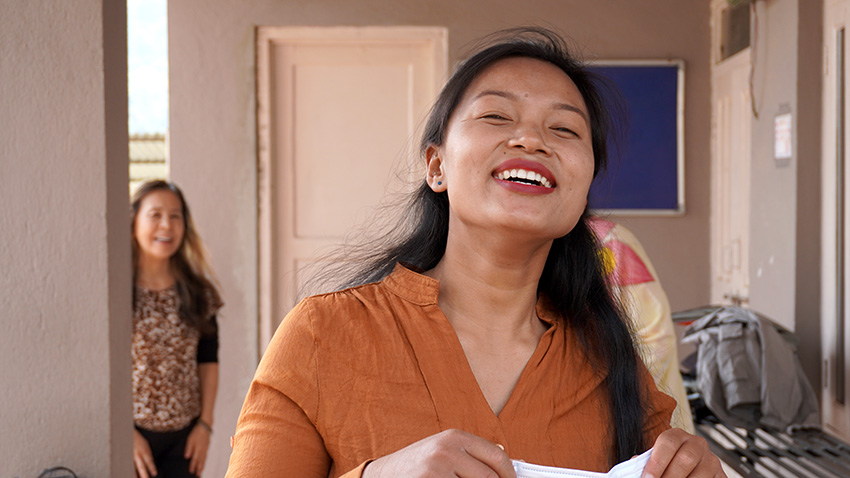
Sushila Waiba (senior interpreter) joined our team in 2015 when we opened the Bajrabarahi Clinic. She is Tamang and can interpret fluently in Nepali, Tamang and English. Now 26(ish, Nepali’s are not very precise with their birth dates) and unmarried . I asked her about her dreams in life. “I’m very happy with my life right now. My parents are doing good so I don’t worry [about] them much”. She rents a room near the clinic and lives with a roommate. Recently she leased a plot of farm land to grow spicy peppers. “I go there and my mind is very… calming. There I’m feeling so happy”. If you met Miss Waiba you would know she always has a very cheerful smile on her face. It’s not hard to imagine her happily tending her pepper farm. She is expecting a harvest of about 35 Kg (80 Lbs) of the “very spicy” peppers which she will sell in the market. When I asked about her thoughts on marriage she replied “I don’t feel like I need that, though one day my parents might tell me I need to do that. For now, I’m happy with my life as it is”. When I asked her to reflect on the young woman she was when she joined us eight years ago she too became very tearful. “I’m so grateful for all of the opportunity that I have had with this project, It is who I am now”.
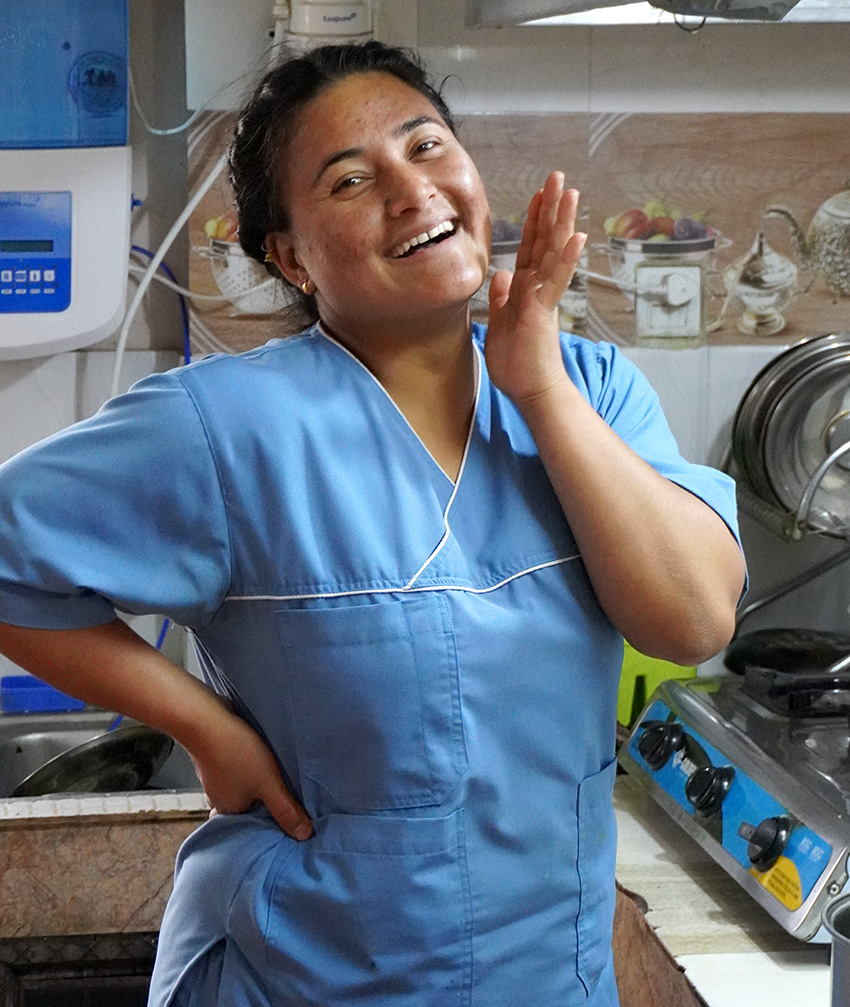
Amrita Gopali (senior interpreter) also joined our team in 2015 and she is also 26(ish). “I was so scared. The other interpreters were so good and spoke English so nicely and I was embarrassed when I had to speak in front of them but I’m not like that anymore. I have much more confidence”. I asked her about her dreams and she had much to say on the subject. “I would like to go abroad to study so that I can help my parents. I would most like to go to the US but Canada or Australia would be okay but I would really like to go to the US if that was possible. I would like to study something in healthcare… nursing maybe”. When I asked her to reflect on the young woman that she was when she joined the project she reflected that what had made the biggest impression on her were the many volunteer practitioners who were young women. “They are in their 30s and they are doctors! They are not married and they are so independent. I want to be like that. And this last year there was a woman volunteer who was 63! Still working and traveling. It has open my eyes to a whole different way of being, otherwise I might have 2 or 3 kids by now”. I would like to add that Amrita is an enthusiastic hip hop dancer.
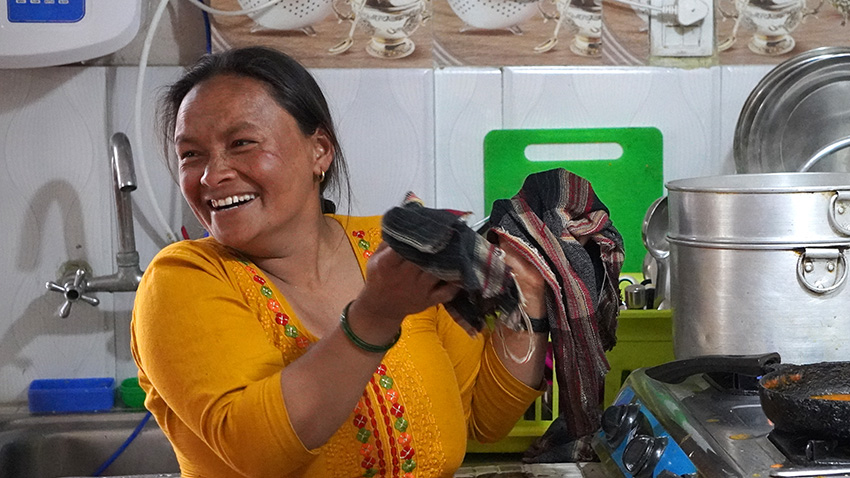
Sakali Gopali (cook/housekeeper) is a widow in her late 30s who joined our team in 2015. She has two (now) teenaged sons and lives in Kunchal. We call her Didi (DeeDee) which means older sister. She is our house mother who looks after everything and everyone. She cleans the clinic, cooks our meals and washes all of the clinic linens. She is always filling in the gaps and supporting what needs to be done. She has an infectious laugh and an abundant smile. She makes every one of our volunteers feel welcome by stuffing them full of food. She knows that I like a cup of coffee in the morning so she puts the kettle on when she arrives. She is the glue that holds the building together and we are so fortunate to have her. When I spoke with her (She does not speak English so I will summarize) she said. “You invest so much in the clinic… I need a washing machine.” Lol, Didi is very direct! So this to you donors out there, to whom I am ever grateful for enabling me to do this work and provide so many meaningful jobs, Didi needs a washing machine. She really does. I told her I would try to make that happen.











